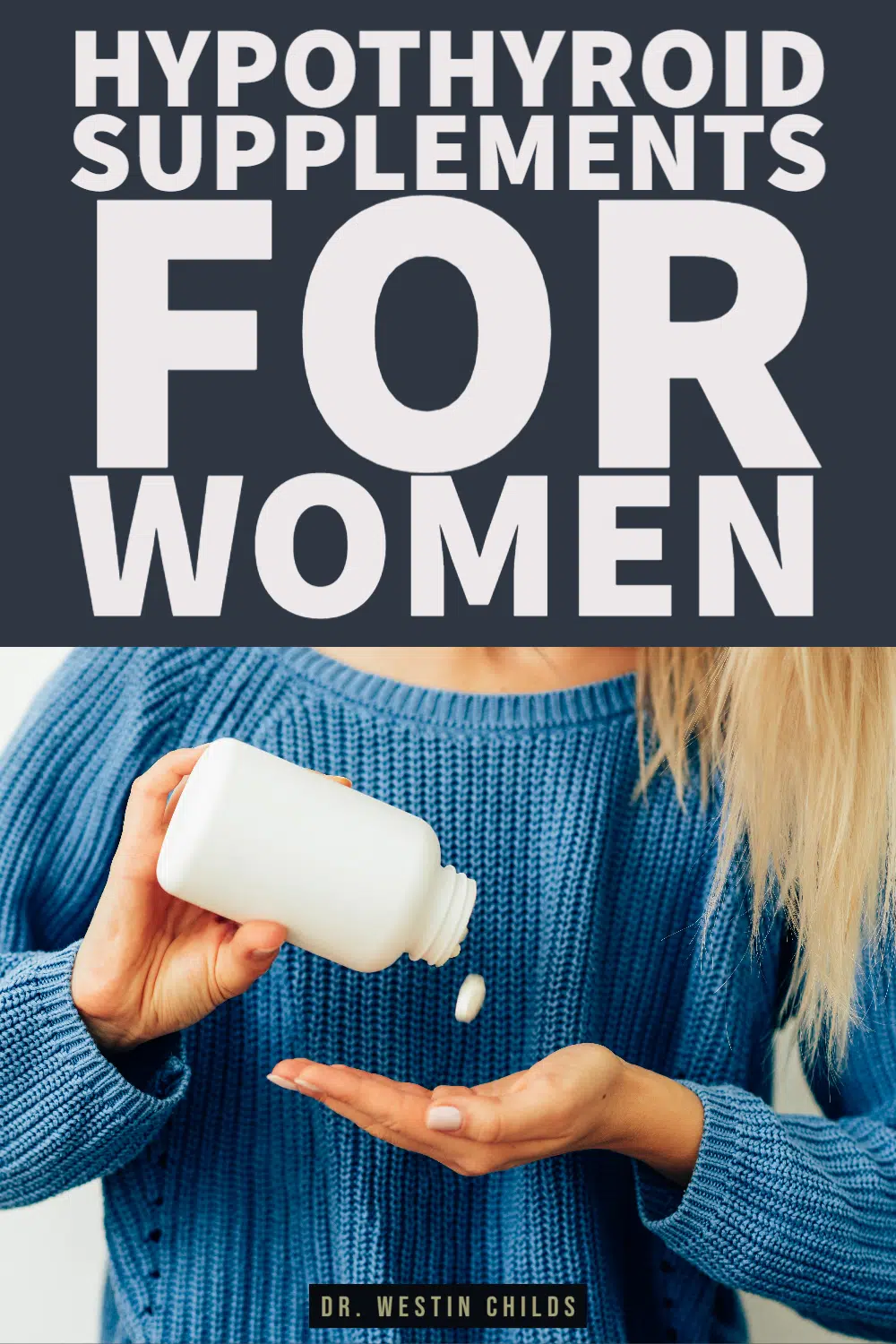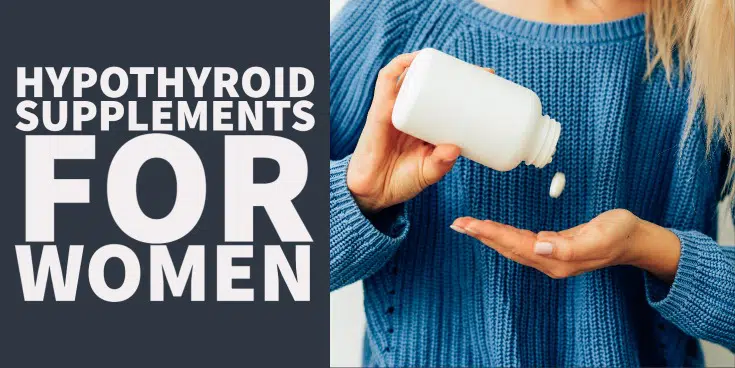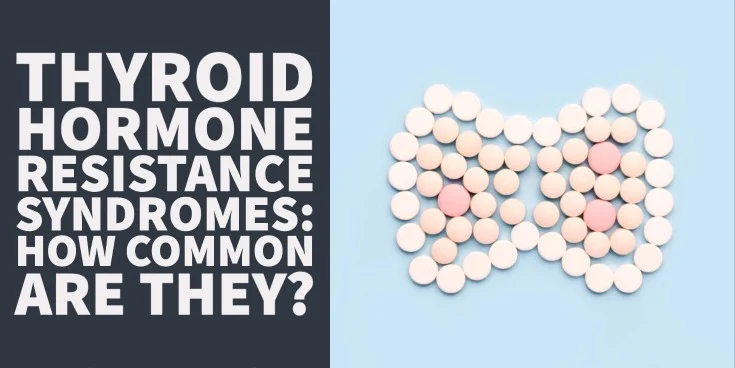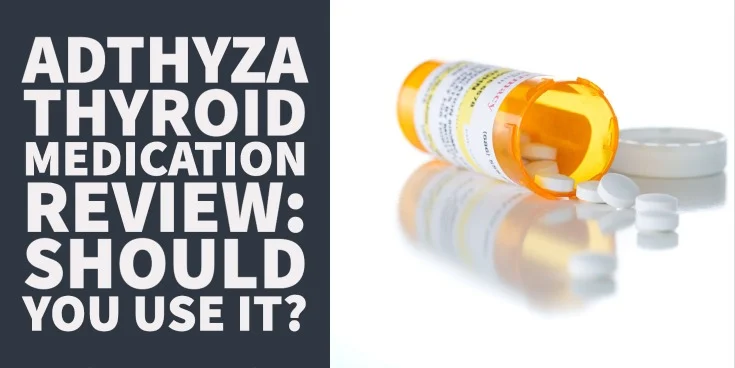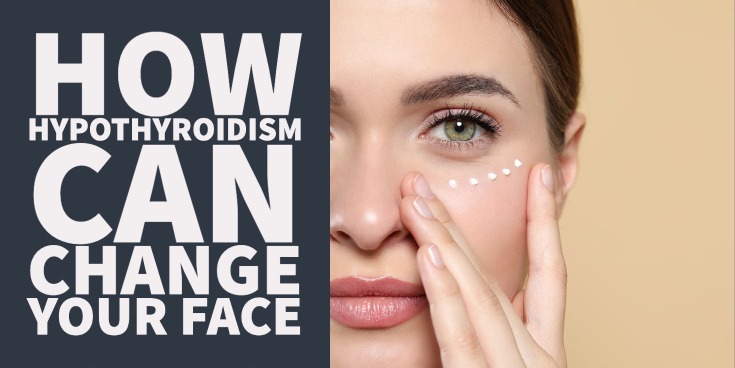Believe it or not, hypothyroidism hits women differently than men.
The symptoms you will experience as a woman with hypothyroidism will be very different from the symptoms that a man will experience.
Sure, there will definitely be some overlap…
Symptoms like weight gain, fatigue, and even hair loss will occur in both genders.
But, by virtue of being a woman, your body is very different from that of a man’s.
This means the degree of hormone imbalance that your thyroid can cause, the type and pattern of weight gain that you will experience, and the processing of your sex hormones need to be addressed in a different way.
And these supplements can help more than others:
DOWNLOAD FREE RESOURCES
Foods to Avoid if you Have Thyroid Problems:
I’ve found that these 10 foods cause the most problems for thyroid patients. Learn which foods you should avoid if you have thyroid disease of any type.
The Complete List of Thyroid Lab tests:
The list includes optimal ranges, normal ranges, and the complete list of tests you need to diagnose and manage thyroid disease correctly!
#1. Glutathione
First up we have glutathione.
Glutathione is considered the most important antioxidant in your body.
And it plays an important role in protecting your thyroid gland from damage and inflammation.
Here’s why:
As your thyroid produces thyroid hormone it also produces free radicals (1) as a by-product.
These free radicals must be cleaned up in order to prevent your own body from harming itself.
If your body can’t produce enough glutathione (2) then you run the risk of damaging your thyroid gland as it operates day to day.
This process of self-damage due to insufficient glutathione production is thought to be one of the main drivers of thyroid gland inflammation in women who have Hashimoto’s.
Because women tend to experience Hashimoto’s in rates about 8x higher than that of men (3), maintaining healthy glutathione levels is incredibly important!
How do you get glutathione into your body?
You have a couple of options:
- The first is to take a glutathione supplement (which is what we are discussing here) – You can take an over-the-counter glutathione supplement to get glutathione into your system quickly.
- The second is to take selenium – Selenium is required by your body to produce glutathione so taking selenium may impact glutathione levels.
- The third is to make changes to your lifestyle – Doing simple things like getting more sleep (4), eating foods high in sulfur, using whey protein (5), or consuming raw milk (6), can all potentially help your body produce more glutathione naturally.
#2. Tyrosine
Next, we have tyrosine.
Tyrosine makes the list because it is required for your body to produce T4 and T3 thyroid hormones.
You can read more about how tyrosine is involved in the creation of thyroid hormone here.
I’ve included tyrosine on this list because women tend to be more sensitive to low levels of T3 compared to men.
Men seem to be able to tolerate lower free T3 levels compared to women and also tend to not respond as well to T3 medications.
The exact reason for this is unknown but may be due to thyroid hormone resistance or to the sensitivity of thyroid hormone at the cellular level.
In either event, taking tyrosine may be beneficial by helping your body produce more T3.
The more T3 you have in circulation the more likely it is to bind to your cells to help you manage your low thyroid symptoms.

Fortunately, tyrosine deficiency is not very common except in rare cases.
Tyrosine is found in high concentrations of foods such as meat (7).
As a result, it’s highly unlikely that you are running around with low tyrosine levels.
Despite this, supplementing with tyrosine still seems to have a positive impact for most women.
Tyrosine is used not only by the thyroid gland for the production of thyroid hormone but also by the adrenal gland for the production of adrenal hormones.
It may be that increased demand on adrenal function shunts tyrosine to that location and pulls it away from your thyroid.
Regardless of how it’s working, it does seem to have a beneficial effect for most people who take it.
If you want to use tyrosine I would recommend combining it with other thyroid-specific nutrients in a supplement such as this one or this one.
If you want to take it alone then look for a dose of around 150mg to 500mg per day.
Worth noting is that in order to take tyrosine as a supplement you need to get it in the l-tyrosine form.
L-tyrosine is a synthetic version of tyrosine and is turned into tyrosine after ingestion.
So don’t be alarmed when you look at your supplement fact panel and do not see tyrosine there but instead see l-tyrosine!
L-tyrosine is exactly what you want.
#3. Guggul
One of my all-time favorite ingredients to support thyroid function is guggul.
Guggul sometimes referred to as guggulsterone or guggul extract, is considered a botanical ingredient.
In simple terms, it means that it comes from a plant.
Guggul comes from the sap of a tree found in India and has been used in ayurvedic medicine for hundreds of years.
Guggul has been shown to have a positive impact on all sorts of problems including things like:
- High cholesterol (8)
- Acne (9)
- Inflammation (10)
- Depression
- Weight gain
- And thyroid function (11)
While these benefits are an extra bonus, we are really concerned with its impact on two important areas:
First, its impact on thyroid function.
And, second, its impact on cholesterol.
We know, and you’ve probably personally experienced this, that low thyroid function can lead to high cholesterol.
While high cholesterol may not seem like a scary thing, it’s not something you want to leave untreated for very long.
Guggul has been shown to have a positive effect on lowering cholesterol in some studies.
This is just an added bonus, though, as guggul really shines in its impact on thyroid function.
You can take guggul to help your body produce more T3 via the T4 to T3 conversion pathway.
Using guggul, especially in combination with nutrients like zinc and selenium, may enhance this pathway that already exists in your body.
If you have low thyroid function and you are symptomatic then putting priority on producing more T3 makes a lot of sense.
Guggul can help you do just that.
In terms of using guggul, I recommend using a supplement like this which also contains ingredients that are required for T4 to T3 conversion.
You can also take guggul extract by itself if you prefer.
#4. Rhodiola
Rhodiola is one of my favorite adrenal adaptogens to use for hypothyroidism, especially for women.
Adrenal adaptogens are ingredients that help your body tolerate and adapt to stress.
They are commonly used to treat conditions like adrenal fatigue and cortisol imbalance.
They play an important role in the treatment of hypothyroid patients because low thyroid function almost always causes issues with adrenal function.
There are many different types of adrenal adaptogens including substances like ashwagandha, holy basil, ginseng, eleuthero, and Schisandra.
They all work to help your body tolerate and manage stress (12) but they are all a little different in how they help.
For instance, using specific types of ashwagandha (such as Sensoril) can have a more calming effect on the mind and body.
Other types of ashwagandha have a more stimulating impact on the mind and body.
But what if you are someone who has plenty of energy and has a hard time winding down at night?
Well, then using a more calming adrenal adaptogen is ideal.
Rhodiola, in my experience using it on hypothyroid patients, tends to have a more energizing effect and is ideal for low thyroid patients who also have low energy.
Taking Rhodiola still has a positive impact on cortisol but may give you that extra oomph you need to get up and go to remain productive throughout the day.
Women notoriously suffer from that mid-afternoon 2 pm slump.
Rhodiola may be the solution to this problem.
Please note, however, that you may need to play around with different adrenal adaptogens to figure out which works best for you!
You can see an example of Rhodiola dosing and how I recommend using it with this supplement.
#5. Maca
Maca is classified as an adaptogen but also has some additional benefits that extend beyond its impact on your adrenal glands.
While using maca can have a positive impact on your energy level that’s not the main reason it was included here.
Instead, I’ve included it because maca can positively impact your sex hormones including estrogens, progesterone, and testosterone.
The reason women with hypothyroidism should care about these hormones is because low thyroid function can disrupt the balance between them.
So using something to bring back balance to these hormones (13) is very important.
Maca can also be used in men and, in fact, it’s something that I use just about every day.
In men, it can have a positive impact on testosterone regulation and this benefit can extend to women as well.
Most of the time, we think about testosterone as a predominately male hormone but it plays an important role in regulating muscle mass, libido, and moon in women as well.
Taking maca daily can help bring balance to low progesterone and high estrogen (frequently caused by hypothyroidism) and improve testosterone regulation at the same time.
How do you know if your sex hormones are out of balance?
Aside from testing, women are actually pretty intuitive when it comes to hormone problems.
Women will often know that something is off in their bodies with their hormones just based on how they are feeling.
Additional symptoms of hormone imbalance may include things like:
- Swelling
- Unexplained weight gain
- Decreased sex drive
- Inability to build lean muscle mass
- Mood swings
- Depression
- Fatigue
If you decide to take maca you will want to look for an organic maca root powder.
This powder contains dried-up maca in powder form and can be easily added to smoothies for ease of use.
I usually recommend around 1 to 2 tablespoons of maca root powder each day in a morning smoothie.
This dose may be too low or too high depending on your body, though, so don’t be afraid to play around with the dosing.
#6. Calcium D Glucarate
Calcium D glucarate is a compound that does two important things for women with hypothyroidism:
- It’s great for helping your body metabolize estrogens – Women often struggle with the symptoms of high estrogen even while their estrogen level remains fairly normal. This is often caused by disordered estrogen metabolism in the body. There are many different types of estrogens that your body must eliminate and metabolize. If your body is inefficient at metabolizing certain estrogens then they may build up and cause symptoms of estrogen excess. Calcium d glucarate can help your body make sure your estrogens are being broken down appropriately (14).
- It’s great for assisting in detoxification in the liver – In addition to its impact on estrogen metabolism, calcium d glucarate can also assist with detoxification in the liver. This matters for women because they tend to be more sensitive to exposure to endocrine-disrupting chemicals or EDCs. These EDCs can mimic hormone function and lead to overstimulation (or under-stimulation) of certain hormones. Taking calcium d glucarate can help your body eliminate these chemicals by assisting in the detoxification process (15).
The only downside to calcium d glucarate is that its effects are temporary and only occur after using the supplement.
This isn’t a huge problem but it does mean you may need to come back to using it from time to time.
For instance, if you feel that your body needs some additional assistance with detoxification or estrogen metabolism then you can use it as needed.
For best results, you’ll want to use a dose between 500mg and 3,000mg per day.
Occasionally, some people may experience a detox-like reaction when using it which may include minor flu-like symptoms, headache, muscle aches, and so on.
This usually fades within about 5-7 days if you experience it at all.
#7 & #8. Adrenal Glandulars & Thyroid Glandulars
I’ve included #7 and #8 together because even though they are different, they are similar in how they are working in your body and in your thyroid.
If you are a thyroid patient then you’re probably well aware of the class of thyroid medication known as Natural Desiccated Thyroid.
Natural Desiccated thyroid, or NDT for short, comes from the thyroid gland of animals and contains active thyroid hormones in addition to other ingredients.
Thyroid and adrenal glandulars also come from the thyroid and adrenal gland of animals but they do not contain active thyroid hormones.
Having said that, they are still powerful tools in treating thyroid and adrenal problems and perhaps the most potent over-the-counter ingredient that you can get.
Throughout centuries glandulars have been used to treat various medical conditions.
For instance, if you had a problem with your liver then you would eat liver.
If you have a problem with your adrenal gland then you eat adrenal glands.
Nowadays, you don’t have to consume the gland or tissue of an animal because we can take those ingredients and put them in capsule form to take by mouth as a supplement.
When you do that, you are taking glandulars.
It’s not exactly known why adrenal and thyroid glandulars are helpful in treating thyroid and adrenal issues but it probably has to do with the fact that these ingredients contain building blocks that your own body can use to optimize the function of these glands.
Through the use of prohormones, nutrients, enzymes, and proteins, your body may take the building blocks found in the glands of animals and use them as building blocks to produce your own hormones.
This is just a theory, though, as we don’t know exactly how they work.
But what I can tell you is that they do have a beneficial effect on most people who take them.
The only downside to using these glandulars is that you have to pay special attention to the source.
If you purchase them from overseas or from a less-than-reputable company, they may be laced with active hormone which can throw your thyroid off.
For this reason, many doctors recommend avoiding these ingredients even though can be helpful.
But you can simply avoid this problem by purchasing from reputable sources that are manufactured in the USA.
Doing this will solve the issue and you should be able to take them without any issue.
Dosing can vary for adrenal and thyroid glandulars but if you want to get started a dose of around 25 to 200mg of adrenal or thyroid glandulars is a good place to start.
I would recommend checking out this supplement if you are interested in getting started with thyroid glandulars and this supplement if you are interested in starting with adrenal glandulars.
And, yes, they can both be taken together as thyroid patients often tend to have both thyroid and adrenal problems!
Final Thoughts
Can supplements actually move the needle if you are a woman with hypothyroidism?
The answer is a definite yes.
Having said that, you always need to remember that supplements are purely that:
A supplement to a healthy lifestyle.
While supplements can augment your other treatments and therapies they do not replace eating healthy, exercising regularly, practicing intermittent fasting, getting a good night’s rest, and managing your stress.
But when combined with these treatments you can see significant improvement in how you are feeling.
I’ve hand-picked this list of supplements because I feel they are ideal for the problems that hypothyroid women face but you may find additional supplements that are also helpful.
Now I want to hear from you:
Are you currently taking any of these supplements?
If so, which ones are you using, and are they helping you to feel better?
If not, are you considering using any?
Did any of these supplements stand out to you?
Leave your questions or comments below!
Scientific References
#1. https://synapse.koreamed.org/articles/1044124
#2. https://www.ncbi.nlm.nih.gov/pmc/articles/PMC7692168/
#3. https://www.thelancet.com/pdfs/journals/lancet/PIIS0140673605745359.pdf
#4. https://www.ncbi.nlm.nih.gov/pmc/articles/PMC5524320/
#5. https://pubmed.ncbi.nlm.nih.gov/12537959/
#6. https://pubmed.ncbi.nlm.nih.gov/24271994/
#7. https://www.sciencedirect.com/topics/agricultural-and-biological-sciences/tyrosine
#8. https://www.ncbi.nlm.nih.gov/books/NBK72258/
#9. https://pubmed.ncbi.nlm.nih.gov/7798429/
#10. https://pubmed.ncbi.nlm.nih.gov/18078436/
#11. https://pubmed.ncbi.nlm.nih.gov/15798994/
#12. https://pubmed.ncbi.nlm.nih.gov/20946017/
#13. https://pubmed.ncbi.nlm.nih.gov/18784609/
#14. https://pubmed.ncbi.nlm.nih.gov/12197785/
#15. https://pubmed.ncbi.nlm.nih.gov/2346674/
